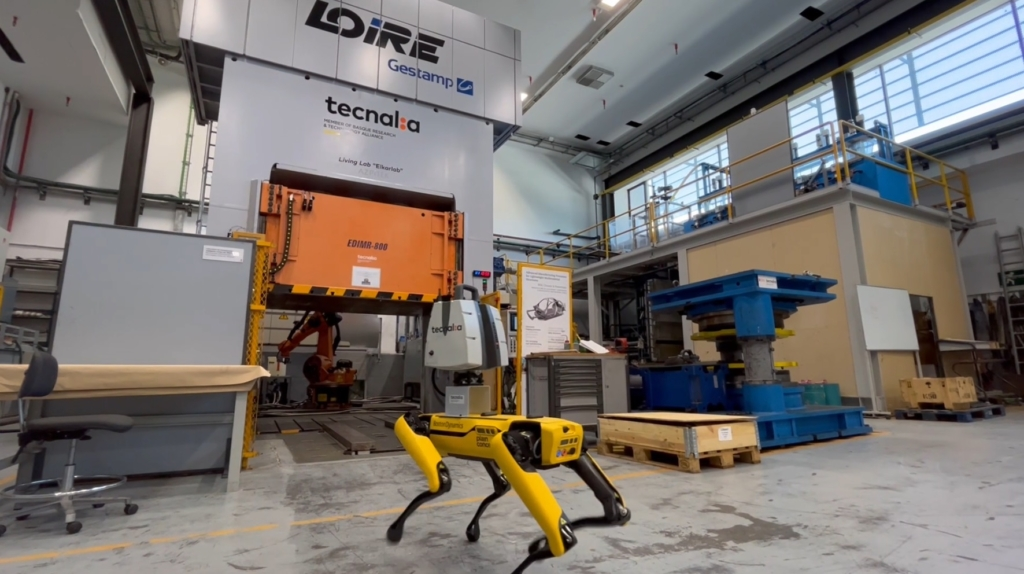"This robot is able to access hazardous spaces in industrial plants and collect the geometrical data needed for the creation of digital twins"
Our Digital Construction Services technological platform uses a robot with LiDAR sensors to automate the process of laser scanning inaccessible industrial spaces
Demonstration of the robot at TECNALIA's facilities
The demonstration of the robot at our facilities showed its ability to climb up and down stairs, move through narrow spaces, negotiate obstacles and access hazardous spaces for workers.
This initiative, known as LANVERSO and backed by the Basque Government's ELKARTEK 2022 programme, is aimed at the integral digitalisation of Factory 4.0. The ultimate vision is to achieve automation in the generation of digital factory models, where the functional twins of machinery and processes can be seamlessly integrated.
Efficiency and safety in hazardous environments
The robot, developed by the renowned company Boston Dynamics and equipped with a variety of sensors and cameras by TECNALIA, not only offers an advanced solution for the creation of digital twins, but also opens up a wide range of applications, from the inspection of critical infrastructures to the delivery of packages in hard-to-reach places. With its autonomous capacity and ability to negotiate obstacles, this robot ushers in a new era in industry, driving efficiency and safety in hazardous environments.
LiDAR-type sensors use light instead of sound or radar to measure distances: they enable the robot to scan and capture the geometric data which is essential for digitalising factories. Furthermore, the use of the robot automates the laser scanning process and accesses spaces that are hazardous or difficult for humans to access.
On the other hand, the use of algorithms enables this robot to increase efficiency and precision in the planning and maintenance of industrial facilities. This is turned into benefits, such as reduced working time, access to previously inaccessible spaces and reduced risk of accidents.

